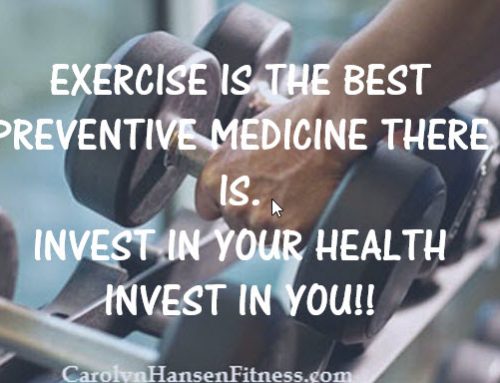When we don’t eat healthy, don’t get enough muscle building and maintaining exercise, don’t get enough quality sleep or have too much stress, the body responds by triggering inflammation.
Inflammation is often compared to fire. When controlled, there is no question that fire keeps us warm, healthy, and protected, but when there is too much fire, or if fire gets out of control, it can be destructive. And it does not need to be big to cause damage. It is now understood that low-grade chronic or on-going inflammation that is below the level of pain, can contribute to many
chronic health problems and can itself become a disease.
This ongoing low-grade inflammation is the stage where your body no longer has the ability to turn off the inflammatory response and starts damaging healthy tissue or prevents them from properly repairing.
At this point, it begins to destroy healthy cells in arteries, organs, joints, and other parts of the body. It could damage the intestinal lining in your gut and cause digestive problems, it could damage the arteries in your heart and cause heart disease, or it could damage your joints and cause rheumatoid arthritis. It seems, too many pro-inflammatory choices have created a monster.
Inflammation presents damaging consequences to our body, brain and health over the long term. The wonderful news is, we can control – and even reverse – inflammation through a healthy lifestyle. The food we eat, how much exercise we get, how much stress we are experiencing along with the quality of sleep we get all really matter when it comes to reducing inflammation.
The truth is, we can dampen, counteract and prevent health issues caused by chronic inflammation and the perfect starting place is to check out our weight.
Lose weight –
Losing excess weight is a great place to start as it induces those fat cells to produce fewer harmful cytokines. The more excess weight you carry as fat, the more active those fat cells are and the more inflamed you will be.
Visceral (deep internal) fat triggers inflammation
Here is how this works:
1. Excess fat from the cells oozes out, triggering an immune response.
2. Fat cells undergo mechanical stress, triggering an immune response.
What this means is that macrophages (the foot soldiers of the immune system) make their way into fat tissue to see what all the fuss is about. Everybody has some macrophages in their fat tissue. But the proportion varies considerably – from 10 percent macrophages in lean people, to 50 percent in obese people. As the macrophages make their way into fat tissue, the body shows an increase in markers of inflammation.
The important point to understand is that chronic inflammation is not just another a side effect of obesity.
Instead, it appears to be the link between obesity and disease.
Exercise –
Hands down the best way to reduce inflammation is with proper exercise. The dominant response from exercise is anti-inflammatory. The cellular signals released from contracting muscles during exercise inhibit the negative inflammatory response
reducing pro-inflammatory signals and reductions in low-grade chronic inflammation.
Over time, the benefits from reduced chronic inflammation can include improved glucose management, fat metabolism and immune function, thereby enabling our bodies to be more prepared to combat illness and recover from an injury.
Exercise also teaches our bodies to react better to stressors imposed on it.
Avoiding chronic inflammation will help improve nutrient absorption, alleviate cravings, improve insulin function, help control body weight, and improve our mental state; 90 percent of the “feel good” brain chemical, serotonin which is produced in the gut.
Get your Omega-3 –
You need to get a proper balance of omega-6 to omega-3 fats: Prostaglandins, the lipid compounds derived from fats, can be either pro-inflammatory or anti-inflammatory. The prostaglandins produced by the breakdown of omega-6 fats are mostly pro-inflammatory, and the prostaglandins produced by omega-3 fats are mostly anti-inflammatory.
Many people consume too much omega-6 fat and not enough omega-3 fat. The solution? Dump cooking oils made with corn, safflower and other omega-6 oils, choose grass-fed meat over grain-fed meat, and eat more cold-water fish (or take fish-oil supplements).
Most adults should aim for an omega-6: omega-3 ratio of 2:1 or 3:1.
Omega-3s contain potent anti-inflammatory properties. Some foods rich in this fatty acid include chia seeds, fish, fish oil, flaxseeds, lean meats, seafood, soybeans, spinach, and walnuts.
Limit refined carbohydrates –
Consuming excess refined sugars contributes to inflammation both by increasing the production of pro-inflammatory prostaglandins and raising insulin levels, which is not catastrophic by itself, but will eventually lead to increased inflammation.
To reduce the effects of inflammation and inflammation-related medical conditions, and to control blood sugar levels it is essential to decrease or eliminate the amount of flour and sugar from our diets. Some of the more common sources of refined carbs include
bread, cereal, cookies, crackers, pasta, and soft drinks.
Begin by avoiding white foods, such as white bread, rice and pasta, as well as foods made with white sugar and flour. Build meals around lean proteins and whole foods high in fiber, such as vegetables, fruits and whole grains, such as brown rice and whole wheat bread.
Check the labels and make sure that “whole wheat” or another whole grain is the first ingredient.
Note: Don’t be fooled by gluten free products as they are high in other starch flours like potato and rice, which cause high insulin responses leading to potential fat storage, contain anti-nutrients as well as being devoid of nutrition.
Sugars and their by-products –
Sugar has many guises; corn syrup, dextrose, maltodextrin, fructose, golden syrup, maltose, agave syrup, sorghum syrup and sucrose are some of the creative names used. Artificial food additives such as aspartame and other artificial sweeteners, MSG, colourings and flavourings should be avoided. Use natural sweeteners like Truevia, Purevia or pure Stevia.
Increase dietary antioxidants:
In general, a diet high in healthy fats downregulates the production of inflammatory cytokines; coconut and its by-products, cold pressed oils, fat from naturally raised animals and poultry, raw nuts and seeds, olives, avocados, oily fish, wild fish, meats including offal and poultry from free range, grass fed or naturally reared animals, eggs, high fat organic or grass fed dairy in moderation, fruits, vegetables and all spices and herbs.
Additional factors and inflammation –
• Sleep or the lack of, is also a cause of elevated cytokines (inflammatory markers).
• Stress is a major contributor to inflammation and steps should be taken to reduce it; a proper night’s sleep is in actual fact one of the best strategies, along with adherence to a regular exercise program which will help deal to stress.
• Environmental toxins, also labelled as endocrine disrupters or hormone mimickers, increase oestrogen levels in turn causing fat gain as already discussed; fat is a factory for cytokines (inflammatory chemical mediators).
Toxins are found in household cleaners, pesticides, canned foods, plastics, toiletries in particular phthalates and parabens, industrial products e.g. solvents and paints, herbicides and non-filtered water; they all cause inflammation.
To summarise –
An anti-inflammatory lifestyle includes:
Eating anti-inflammatory foods
Adequate exercise and being active
Managing weight
Not smoking
Limiting alcohol intake
Getting enough quality sleep
Managing stress well
Every choice we make about our health boils down to this: Pro-inflammatory or antiinflammatory.
For example:
• Working 100 hours a week at a stressful job with little sleep? Pro-inflammatory
• Eating a high-carb, low-fat diet filled with grains and sugar? Pro-inflammatory
• Drinking a few beers a night? Pro-inflammatory
• Exercising regularly and living an active lifestyle. Anti-inflammatory
• Eating lots of healthy fats Anti-inflammatory
• Getting 8 hours of sleep? Anti-inflammatory
Every action contributes to health or promotes disease and it’s utimately up to each one of us to continue making the right decisions daily when it comes to our own well-being.
You can begin shifting your health from dibiliatating disease and despair to dynamite energy and vibrant living. Begin taking baby steps as you shift to a healthier lifestyle. As your health increases, small steps transition into larger ones and soon become giant steps.
“Super wellness” is all about staying well when you are healthy. It is about building a strong, disease resistant body and even if you get sick it is about finding and eliminating
the cause of the disease not just managing the symptoms.
It’s time to boost your “health bank account” and experience “super wellness.”
“Wellness Wake Up Call” can help you do just that…
For more tools and resources from Carolyn Hansen to assist you in attaining your health and fitness goals and achieving the success you desire in life, please visit: Carolyn Hansen Fitness









Leave A Comment